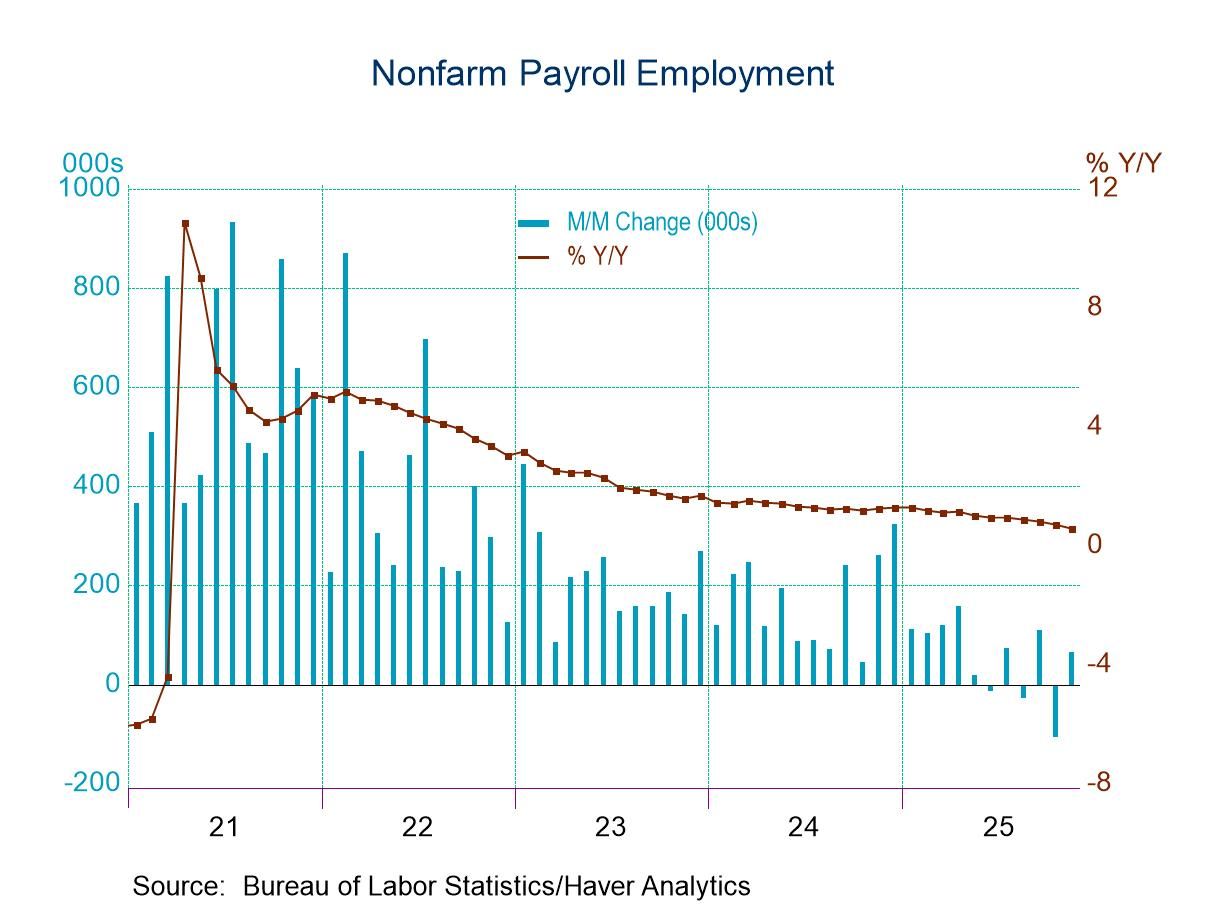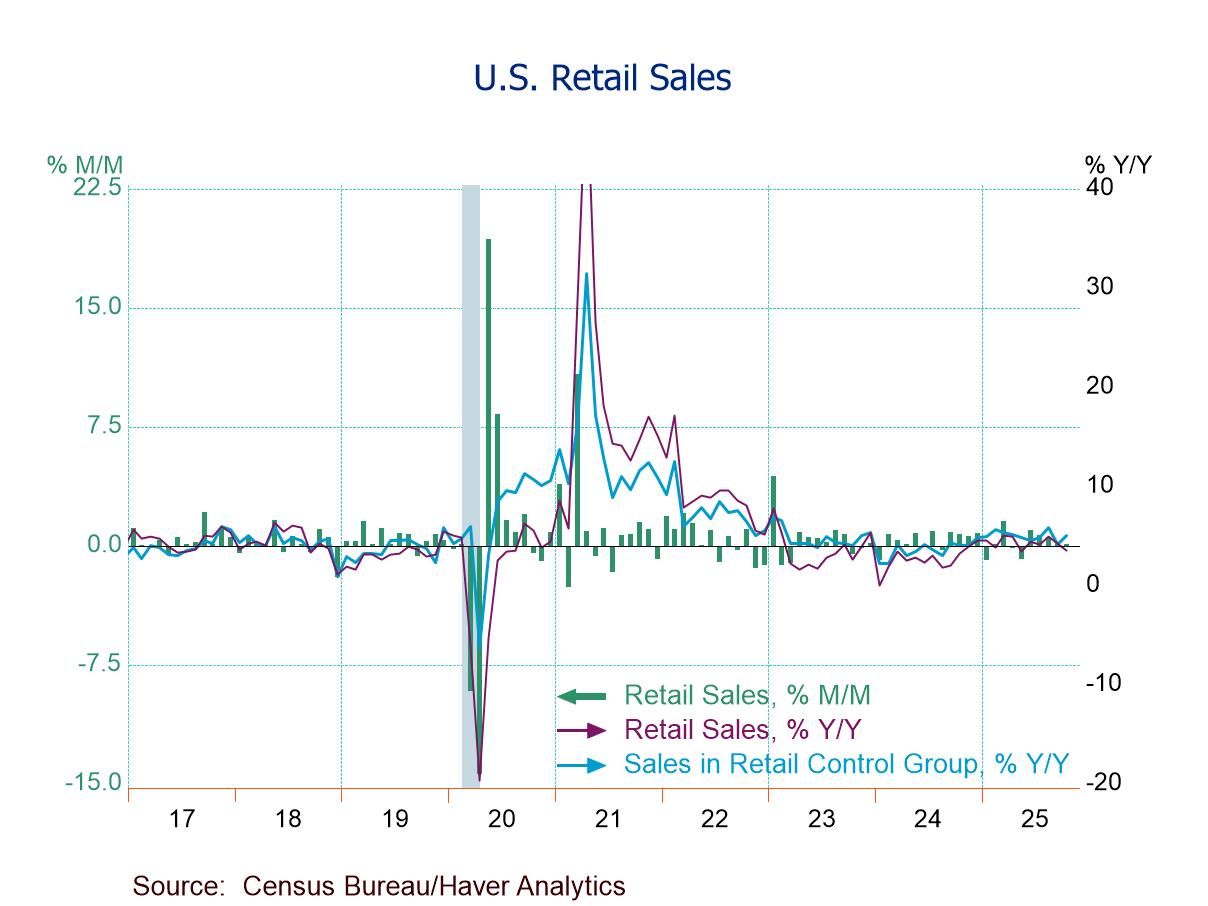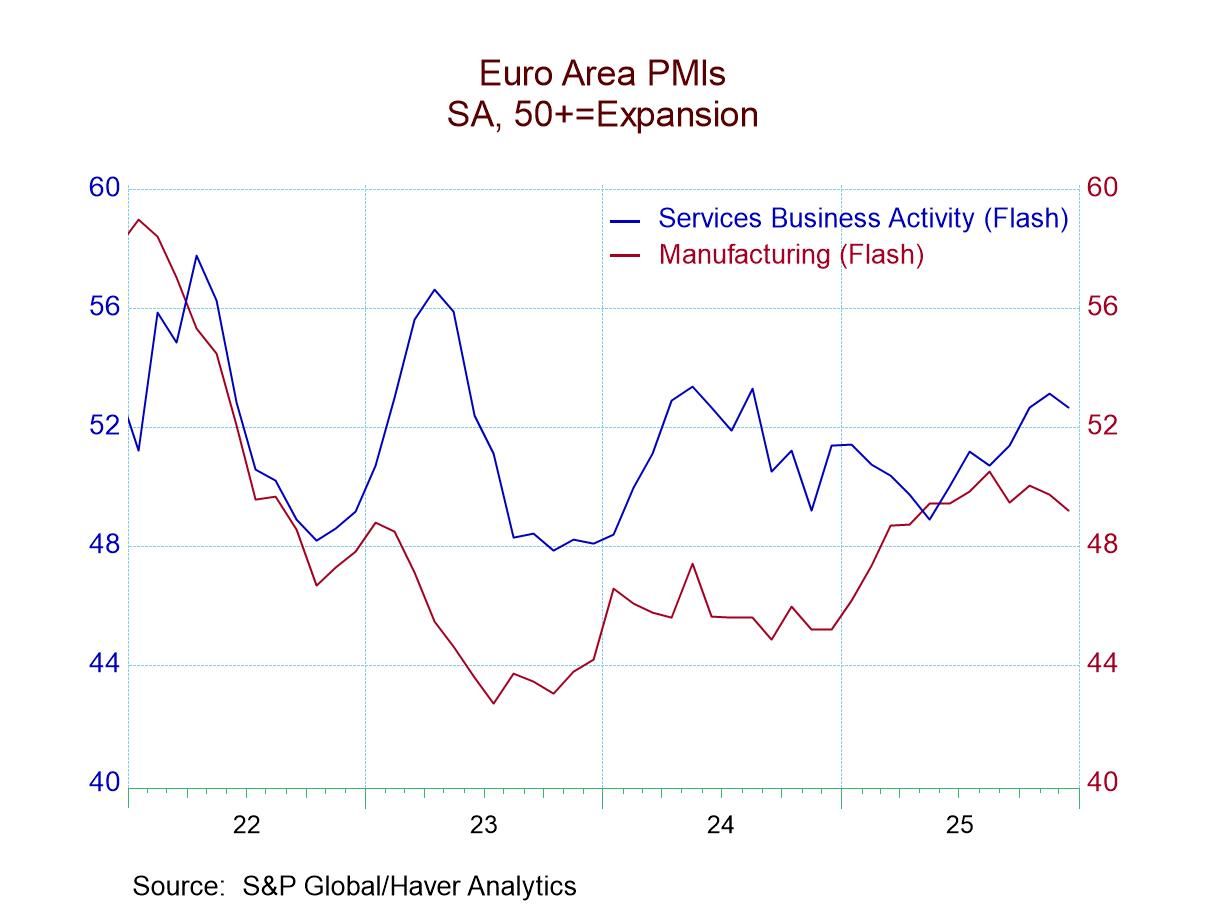 Global| Oct 24 2005
Global| Oct 24 2005ECRI Leading Index Reached a New High
by:Tom Moeller
|in:Economy in Brief
Summary
The weekly leading index of the US economy published by the Economic Cycle Research Institute (ECRI) increased 0.7% last week and rose to a record high for the series. The gain followed no change during the prior week and w/w declines [...]
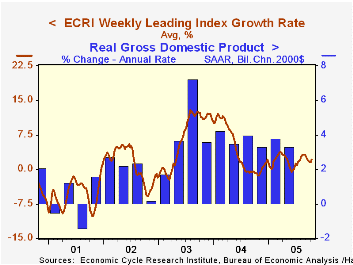
The weekly leading index of the US economy published by the Economic Cycle Research Institute (ECRI) increased 0.7% last week and rose to a record high for the series. The gain followed no change during the prior week and w/w declines during much of September.
Despite the somewhat erratic performance recently, the six month growth rate of the leading index at 2.1% is near the middle of its recent range and is up from the low of -0.6% in early June.
During the last ten years there has been a 53% correlation between the change in the weekly leading index and US real GDP growth during the following quarter. The correlation has risen to 76% during the last five years.
Visit the Economic Cycle Research Institute for analysis of US and international business cycles.
Tax Reform Options in the Real World from the Brookings Institution is available here.
| Economic Cycle Research Institute | 10/14/05 | 12/31/04 | Y/Y | 2004 | 2003 | 2002 |
|---|---|---|---|---|---|---|
| Weekly Leading Index | 135.9 | 132.5 | 2.9% | 132.6 | 124.9 | 119.8 |
| 6 Month Growth Rate | 2.1% | 1.6% | 4.2% | 6.7% | 1.1% |
by Louise Curley October 24, 2005
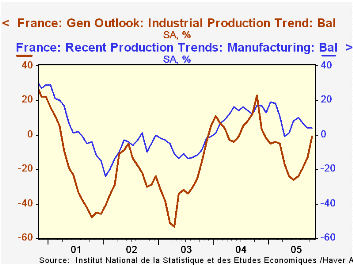
Business confidence in France has been improving since June of this year when the balance of opinion on the general outlook registered 24% more pessimists than optimists. According to data released today by the French Institute of Statistics and Economic Studies (INSEE), the excess of pessimists over optimists regarding the outlook among businessmen has declined to only 1% in October. Over the past five years, business opinion on the outlook has tended to be more pessimistic and more volatile than business opinion of actual trends in production as can be seen in the first chart. The various components of the overall view are shown in the table below.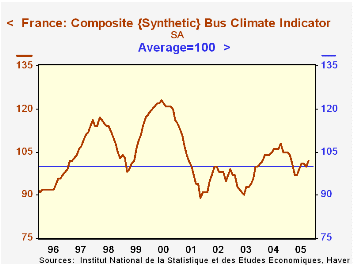
INSEE also publishes a composite indicator of business confidence. It is based on the balances of opinions on past production, personal production forecasts, inventories, total and foreign order book and demand and general production forecasts and is constructed in such a way that the series has an average of 100 and a standard deviation of 10. According to this measure, business confidence weakened from mid 2004 to April and May of this year and is currently improving. Since late 2001, however, French business confidence has been subdued, ranging much closer to the average than in the past, as can be seen in the second chart.
| French Business Confidence Indicators (% Balance) | Oct 05 | Sep 05 | Oct 04 | M/M Dif | Y/Y Dif | 2004 | 2003 | 2002 |
|---|---|---|---|---|---|---|---|---|
| General Outlook | -1 | -13 | 23 | 12 | -24 | 5 | -29 | -22 |
| Recent Production Trend | 4 | 4 | 17 | 0 | -13 | 12 | -8 | -8 |
| Order Book and Demand | -14 | -19 | -12 | 5 | -2 | -15 | -23 | -18 |
| Foreign Order Book and Demand | -8 | -12 | -8 | 4 | 0 | -11 | -20 | -17 |
| Inventories | 13 | 13 | 6 | 0 | 7 | 8 | 10 | 13 |
| Prices | -4 | 2 | 2 | -6 | -6 | 1 | -7 | -5 |
| Composite Synthetic Indicator* | 102 | 100 | 108 | 2.0% | -5.6% | 105 | 95 | 97 |
Tom Moeller
AuthorMore in Author Profile »Prior to joining Haver Analytics in 2000, Mr. Moeller worked as the Economist at Chancellor Capital Management from 1985 to 1999. There, he developed comprehensive economic forecasts and interpreted economic data for equity and fixed income portfolio managers. Also at Chancellor, Mr. Moeller worked as an equity analyst and was responsible for researching and rating companies in the economically sensitive automobile and housing industries for investment in Chancellor’s equity portfolio. Prior to joining Chancellor, Mr. Moeller was an Economist at Citibank from 1979 to 1984. He also analyzed pricing behavior in the metals industry for the Council on Wage and Price Stability in Washington, D.C. In 1999, Mr. Moeller received the award for most accurate forecast from the Forecasters' Club of New York. From 1990 to 1992 he was President of the New York Association for Business Economists. Mr. Moeller earned an M.B.A. in Finance from Fordham University, where he graduated in 1987. He holds a Bachelor of Arts in Economics from George Washington University.




